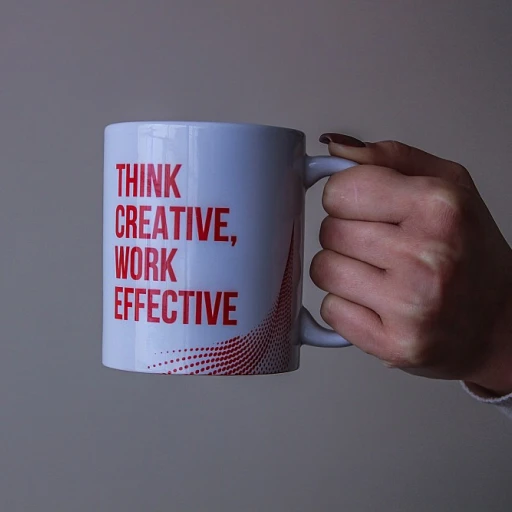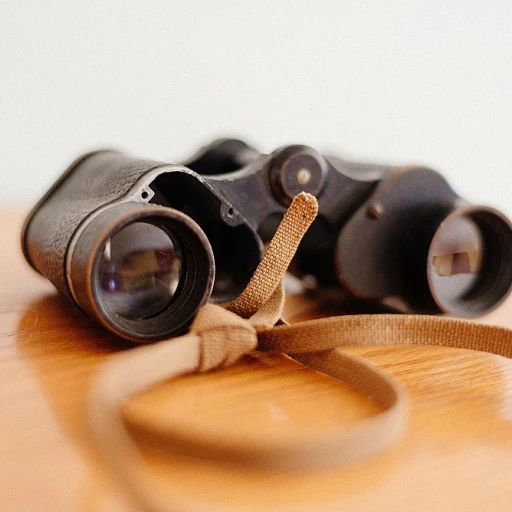
Understanding the Sales Industry Dress Code
Decoding the Industry's Dress Code: First Impressions Matter
In the competitive world of sales, first impressions can be decisive. Understandably, your attire plays a significant role in how a hiring manager perceives your professionalism and readiness for a sales interview. A uniform approach may not work, given the diversity in company cultures and expectations across the industry. It becomes critical to strike the right balance between the established dress code guidelines and your personal style to excel in job interviews.
Typically, traditional sales departments may favor a business-casual dress code, while more conservative sectors might expect formal attire such as a suit and tie or a well-fitted dress with polished dress shoes. The key is to gauge what wear is considered optimal for both the type of sales job and the company you are targeting. Pro tip: err on the side of formality if you are uncertain.
The importance of adhering to the dress code is reflected in the suite of sales interview questions that are angled at assessing candidates' attention to detail and cultural fit. Understanding what the company values in terms of attire can give you a leg up during those challenging interview questions.
Moreover, selecting professional attire doesn't mean sacrificing comfort. It's crucial to wear something that boosts your confidence and allows you to feel good, as this can translate into a more commanding presence during the interview. Remember, how you feel influences how you perform during interviews, so pick outfits that make you feel empowered yet comfortable.
Researching Company Culture
Exploring Corporate Culture for Sales Roles
Learning about the company culture can significantly guide your choice of what to wear to a sales job interview. Understanding the unwritten dress code, especially if you're aiming for a sales job, is crucial. It helps you align with the expectations of the hiring manager and feel confident and professional during the interview.For instance, some companies in more traditional sectors may have a strict business attire policy, requiring candidates to wear a suit, dress shirt, and dress shoes. In contrast, tech startups might lean towards a business casual environment, where a well-fitted outfit with dress pants and an elegant blouse or shirt may be preferable. To get a sense of this, review the company's social media profiles and employee testimonials.
Also, engage with current employees on professional platforms to gather insight into the typical dress code during interviews. You can also visit their official website or reach out to a recruiter directly to get a clearer picture of the appropriate interview attire.
When preparing for your sales interview, remember that aligning with the \u003ca href='https://www.career-transitions-trends.com/blog/understanding-the-role-of-a-screening-interview-in-career-transitions'\u003ecompany culture\u003c/a\u003e not only demonstrates your research skills but also helps answer potential interview questions regarding your fit within the team.
Balancing Professionalism and Personal Style
Creating Your Style While Maintaining Professional Standards
When it comes to attending a sales job interview, it's crucial to strike a balance between professionalism and your personal style. This doesn't mean you should compromise your individuality, but rather, think of it as an opportunity to present yourself as the polished version of "you" that resonates with the role and company. Consider these tips to harmonize personal flair with professional expectations:- Understand the Core Requirements: Start by knowing the basics of what to wear to a job interview in the sales sector. A shirt, dress pants, and appropriate shoes often fall under the business casual or professional category, depending on the company’s dress code. You want to wear an outfit that errs on the side of professionalism.
- Add a Subtle Touch of Personalization: Once the fundamental attire is in place, inject a hint of your personality. This could be through a unique accessory, like a watch or tie, that complements your overall look without overpowering it. Remember, the goal is to stand out in a sales interview for the right reasons, showcasing personal taste that doesn’t distract.
- Let the Company Culture Guide You: Researching the company culture will help you tailor your attire to fit what might be expected or accepted. Some companies might appreciate modern or trendy elements, while others stick to traditional business attire. Having your attire reflect their culture shows that you've done your homework and are ready to become part of their team.
- Feel Good to Perform Well: The attire you choose should not only look professional but also boost your confidence. You should feel good about the way you dress for any job interview as confidence is an attractive trait to hiring managers looking to fill sales positions.
Essential Wardrobe Pieces for Sales Interviews
Key Wardrobe Pieces Essential for Impressing in Sales Interviews
When preparing for a sales job interview, striking a balance between professional dress and personal style is crucial. Having a set of essential wardrobe pieces not only ensures you adhere to the dress code but also helps you feel confident and ready to tackle any interview questions that come your way.
- Suits: A well-fitted suit is a quintessential choice for both men and women in sales interviews. Opt for classic colors like navy, gray, or black to convey professionalism. For women, a tailored skirt suit or a chic pant suit can be an excellent option.
- Dress Pants and Skirts: Pair your suit with dress pants or an appropriate-length skirt. These pieces exude a business casual vibe that speaks to your professional demeanour.
- Shirts and Blouses: Underneath your suit, wear a crisp shirt or blouse. Consider a button-up shirt for a more traditional look, or a blouse with subtle details for a touch of personal flair without sacrificing professionalism.
- Shoes: Shoes are a crucial part of the sales interview attire. Choose polished leather or suede shoes that complement your outfit. Both men and women should opt for closed-toe shoes to maintain a polished appearance.
- Accessories: Keep accessories minimal and tasteful. A classic watch or simple jewelry can add a touch of elegance without being overpowering.
With these wardrobe essentials, you'll be optimally dressed to make a lasting impression on the hiring manager. Remember, the way you dress not only reflects your understanding of the company's culture but also signifies how seriously you take the opportunity to join their team.
Common Mistakes to Avoid
Common Pitfalls to Navigate
When preparing for a sales interview, there are several missteps you can avoid to make the best impression possible. Being aware of these common mistakes will help you present the most professional and polished version of yourself.- Overly Casual Attire: While some companies embrace a more relaxed or business casual environment, opting for attire that's too informal can signal a lack of seriousness about the role. Always err on the side of professionalism to make a positive first impression.
- Ignoring the Dress Code: Each company might have subtle nuances in their dress code or company culture. Not adhering to these expectations can make you appear out of touch. Be sure to look into the company’s norms and align your attire accordingly.
- Wearing Uncomfortable Shoes: Confidence is key during interviews, and your footwear contributes to how you carry yourself. Opt for professional shoes that are comfortable, so you can stay focused on articulating your skills and responding to interview questions without distraction.
- Neglecting Grooming and Hygiene: Personal grooming is an essential part of your professional attire. Ensure that you are neatly groomed and presentable, as it speaks volumes about your attention to detail and respect for the hiring process.
- Pushing Personal Style Too Far: While infusing a bit of personal style can showcase your individuality, straying too far from traditional professional standards may raise flags with hiring managers. Keep unique elements understated and harmoniously blended with your overall business attire.
- Missing Out on the Virtual Component: With the rise of virtual interviews, your digital presence is just as crucial. Ensure your attire is as polished as it would be for an in-person meeting. Rehearse speaking into the camera naturally and check that your surroundings do not distract from your presence.
Adapting to Virtual Interviews
Looking Your Best in a Virtual Setting
In the evolving landscape of job interviews, many hiring managers now utilize virtual platforms as part of their process. The key to making a lasting impression remains largely the same, even when the interview isn't taking place in person. Dressing appropriately for a virtual sales job interview is crucial, as it demonstrates professionalism and attention to detail.
To start, wear a neatly pressed shirt or blouse that corresponds with the business attire norm. Choosing a color that complements your background without blending into it can help you stand out effectively on camera. Consider the company's culture when selecting your interview attire to align with what the sales team leader might expect.
- Camera-ready outfit: Attire that is too casual may be a mistake, while a full business suit could exceed the expectation unless it's a high-level sales position.
- Focus on the top: In a virtual environment, what's visible on screen holds the most weight. Ensure your top piece, be it a shirt or blazer, conveys professionalism.
- Perfect Lighting: Optimize your lighting setup to accentuate your attire, ensuring a clear view of the colors and materials without harsh shadows or glare.
When it comes to lower body attire, sturdy dress pants or appropriate skirts maintain professionalism but may not be visible. However, it can help you to feel more prepared and business-focused.
Don't ignore the details, such as grooming and accessories, even in virtual meetings. These aspects can reflect how you approach details in a sales role. Finally, asking insightful questions to ask during a career transition remains as important as ever to show your value and interest in the position.













